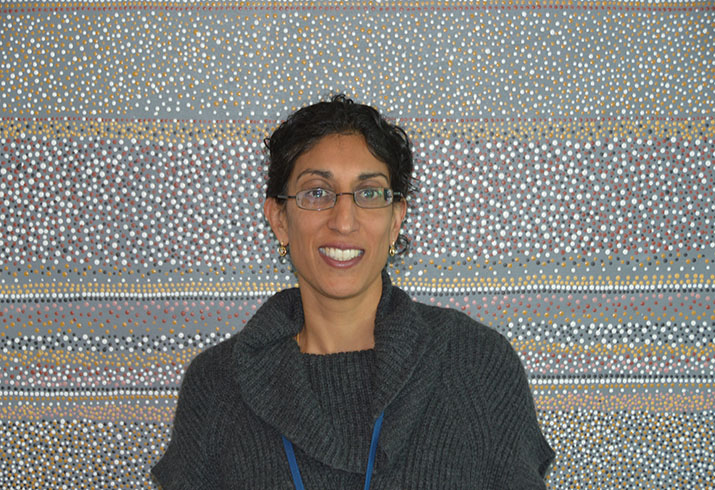Three questions about research with Dr Sarah Cherian

Dr Sarah Cherian, Clinical Lead of the Refugee Health Service and General Paediatrician, has worked at Perth Children's Hospital and the former Princess Margaret Hospital since 2000. Until recently she was also the Director of Clinical Training in the Department of Postgraduate Medical Education, which she held for more than a decade.
Dr Cherian is a proud champion of research into refugee health who said receiving a Telethon Fellowship in 2006 was a pivotal shift in her career and gave her a springboard to transform her research into a PhD. The Telethon Fellowship allowed me to devote one year to dedicated research, but also helped develop my scientific writing and leadership skills, Dr Cherian said. Four years after receiving the Fellowship, Dr Cherian achieved the notable honour of becoming the first candidate to be awarded a PhD in paediatric refugee health in Australia.
Dr Cherian said the research skills and knowledge she gained through this Fellowship also shaped her clinical practice, the CAHS Refugee Health Service and helped the service contribute to the national refugee health evidence base.
We sat down with Dr Cherian and asked her three questions about her experience with research.
Why are you passionate about research?
You are building excellence by embedding clinical research into everything you undertake. For example there is an evidence base for every aspect of our clinical service and an opportunity for patients and families to engage in clinical research regardless of their level of social disadvantage.
If you think differently, you can incorporate research that goes hand in hand with your day to day clinical practice. Even if you work part-time, you can still contribute to research.
I firmly believe innovative research strategies can help us achieve greater equity in our health service by ensuring we ‘reach out’ and meet the needs that most concern our families. For instance we incorporate our dental trial within normal checks for our patients so participating in a research study becomes part of their routine health care and caters for non-English speaking families by providing interpreters.
What research achievement are you proudest of?
Our team has been able to build our service from the ground up which is aligned with national frameworks for refugee service delivery. Through research with families, we know that providing a “one stop shop” with different health professionals is what families’ want, as they are unable to navigate health and service access barriers in the community. Through research and audit our service has also demonstrated that we also clearly align with the CAHS values and the WA government’s Sustainable Health Review recommendations.
I am proud of the fact we’re such a collaborative team and engage in research across health disciplines. Our staff are committed to research despite the additional challenges faced in engaging families who may have limited English or health literacy and/or lack of technology.
Through clinical research we have used our results over time to identify gaps, advocate and drive positive change and health improvements. We’ve also given a voice to populations who are vulnerable and often invisible within our mainstream health services.
I am also proud that we foster interest and support junior staff to embark on clinical research projects at an early career stage. We are celebrating the submission of our colleague’s PhD thesis; Dr Hirani is the third Refugee Health related PhD candidate in the last decade within the service.
What advice would you give to your younger self?
If you are thinking of clinical research, start small and create achievable goals. Each of the smaller goals you achieve will build your capacity and strength. Eventually all of those smaller goals will combine to help you achieve something substantial. Make sure you have fun along the way, keep persevering, strive for excellence and seek to improve health outcomes.

